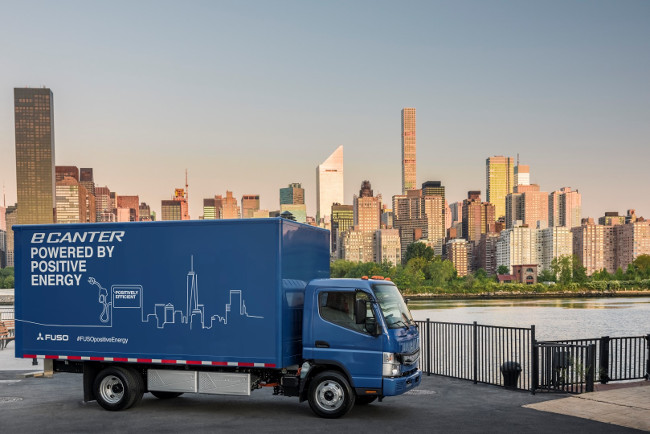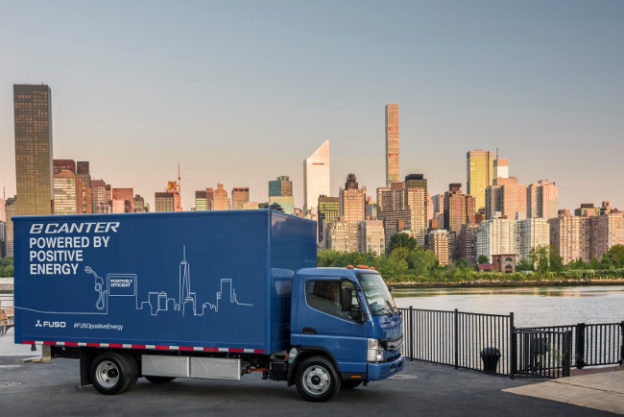
The Mitsubishi FUSO eCanter electric truck
The world’s first all-electric truck to enter series production has been launched in New York. The Mitsubishi FUSO eCanter is an all-electric version of the popular Canter light truck.
The new model is aimed at reducing noise and air pollution in urban environments. Production models will be delivered to launch customers starting this year in the USA, Europe and Japan. Initial production is planned at 500 units over the next two years, with higher-volume production targeted from 2019.
Marc Llistosella, President and CEO of Mitsubishi Fuso Truck and Bus Corporation and Head of Daimler Trucks Asia:
“In times, when everybody is talking about electric trucks, we are the first to actually commercialize a series produced all-electric truck. Having a long history in alternative drivetrains, we are proud to step into this new era. Our FUSO eCanter comes with years of customer testing, and the assurance of parts, services, and warranty through our global FUSO dealership network.”
Daimler’s first US commercial partner for the eCanter will be parcel giant UPS, whose bespoke-bodied brown trucks are frequent sight on the streets of New York. UPS already operates more than 8,500 alternative drivetrain vehicles and presumably is keen to see if electric technology can work for the company at higher gross weights.
In Japan, the launch customer will be Seven-Eleven Co, which will take 25 eCanters onto its fleet.
Running costs, range and load
The new model has been on trial in Portugal and Germany between 2014 and 2017, so Daimler does already have a fair amount of data about the eCanter’s likely performance. According to the manufacturer, the FUSO eCanter has a range of 100 kilometres and a load capacity up to three and a half tons, depending on body and usage.
The vehicle’s electric powertrain contains six high voltage lithium ion battery packs with 420 V and 13.8 kWh each. In comparison with a conventional diesel truck, it is said to offer savings of up to 1,000 Euro per 10,000 kilometres on operating costs.
I read somewhere the other day that battery power wouldn’t work for big trucks. That’s true at the moment — this is a small truck — but who’d bet against further advances in this technology over the next five years? Not me.

